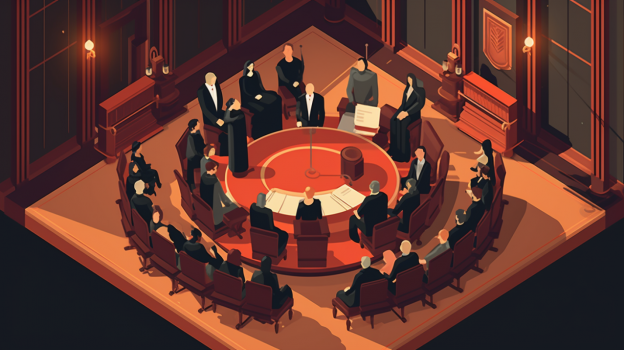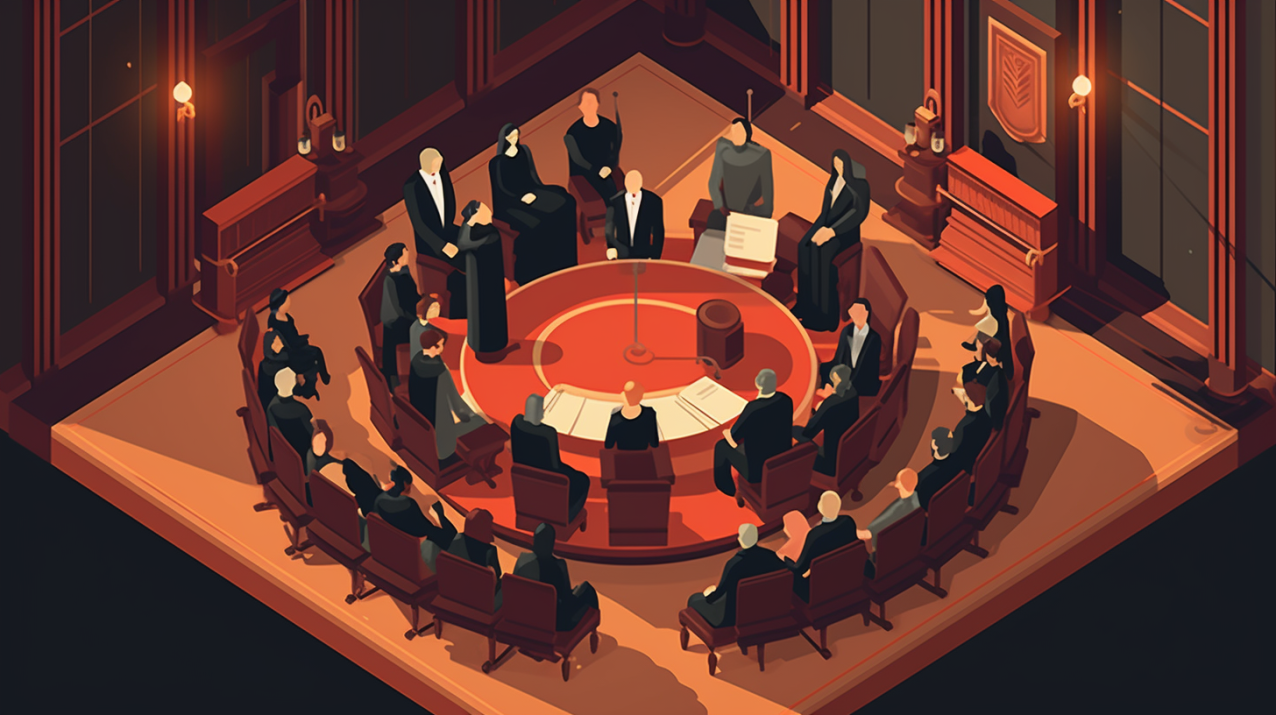Are you currently dealing with a construction dispute and feeling overwhelmed with legal concerns? Look no further, as we are here to provide you with reassurance and guidance. Our articles are designed to address common legal issues surrounding construction disputes, and we aim to create an emotional connection with our readers. By optimizing our content for search engines, we ensure that you easily find the information you need. If you’re seeking prompt assistance, we encourage you to call the attorney listed on our website for further information. Remember, you don’t have to go through this complex process alone – we’re here to help. Construction Dispute
Understanding Construction Disputes
When it comes to construction projects, disputes are an unfortunate reality that can arise at any stage of the process. Understanding construction disputes is essential for developers, contractors, and other parties involved in the construction industry. By having a comprehensive understanding of construction disputes, common causes, and methods of resolution, you can navigate these challenging situations more effectively. In this article, we will delve into the world of construction disputes and provide valuable insights to help you navigate through these issues successfully.
What is a construction dispute?
A construction dispute refers to a disagreement or conflict that arises during the planning, design, or execution of a construction project. These disputes can involve various parties, such as developers, contractors, subcontractors, suppliers, and even homeowners. Construction disputes can center around a wide range of issues, including payment disputes, contract disagreements, scope disputes, delay claims, and faulty workmanship disputes. Resolving these disputes in a timely and efficient manner is crucial to avoid project delays, financial losses, and damage to professional relationships.

Common causes of construction disputes
Construction disputes can occur due to a multitude of factors. Understanding the common causes can help you identify potential conflicts and take proactive measures to prevent them. Some of the most common causes of construction disputes include:
Payment disputes
Payment disputes are one of the most prevalent issues in the construction industry. These disputes can arise when one party fails to make the agreed-upon payment to another party involved in the project. Often, payment disputes are a result of discrepancies in invoices, change orders, or disagreements over the quality of work.
Contract disputes
Contract disputes occur when parties involved in the construction project have conflicting interpretations of the terms and conditions laid out in the contract. These disputes may involve disagreements over project specifications, timelines, payment terms, or any other provision within the contract. Resolving contract disputes requires a careful analysis of the contractual obligations and effective communication between the parties involved.
Scope disputes
Scope disputes arise when there is a discrepancy between the agreed-upon scope of work and what is actually delivered. This can lead to disagreements over additional work, change orders, and extra costs. Clear communication and documentation throughout the project can help prevent scope disputes by ensuring all parties have a shared understanding of the project requirements.
Delay claims
Construction projects often face various delays, such as weather conditions, labor strikes, or unexpected site conditions. When these delays impact the project’s timeline and result in financial losses for one or more parties, delay claims may arise. Resolving delay claims requires a thorough analysis of the project schedule, documentation of delays, and an understanding of the legal and contractual implications.
Faulty workmanship disputes
Faulty workmanship disputes occur when the quality of work does not meet the agreed-upon standard. This can encompass issues such as improper installation, defective materials, or construction defects that affect the overall functionality or aesthetic appeal of the project. Resolving faulty workmanship disputes may involve inspections, expert opinions, and negotiations to reach a satisfactory resolution.
The importance of resolving construction disputes
Resolving construction disputes in a timely and efficient manner is of paramount importance for all parties involved. Failing to address disputes can lead to significant consequences, including project delays, cost overruns, damage to professional relationships, and even legal consequences. Promptly resolving construction disputes allows for the continuation of the project with minimal disruption and reduces the potential for escalating conflicts. It also preserves the reputation and credibility of all parties involved, which is critical in the highly competitive construction industry.
Types of Construction Disputes
Construction disputes can be categorized into various types based on the specific issue at hand. Understanding these types of disputes can help you navigate through the resolution process more effectively. Let’s explore some of the common types of construction disputes below:
Payment disputes
Payment disputes are a frequent occurrence in the construction industry. Contractors and subcontractors may find themselves in disputes over unpaid invoices, delayed payments, or payment amounts that do not reflect the work completed. These disputes can often be resolved through negotiations or alternative dispute resolution methods such as mediation or arbitration.
Contract disputes
Contract disputes arise when there is a disagreement over the terms and conditions outlined in the construction contract. These disputes can involve issues such as breach of contract, interpretation of contract clauses, or failure to perform contractual obligations. Resolving contract disputes may involve legal analysis, negotiation, and potentially litigation if an impasse is reached.
Scope disputes
Scope disputes occur when there is a discrepancy between the agreed-upon scope of work and what is actually provided. These disputes can arise due to changes requested by the client, misunderstandings, or inadequate project documentation. Resolving scope disputes often requires clear communication, documentation, and potentially revisiting the project contract to address any necessary modifications.
Delay claims
Delays are a common occurrence in construction projects and can lead to disputes when one party believes the delay has resulted in financial losses or impacts project schedule. Resolving delay claims typically involves a thorough analysis of the project schedule, identifying the cause of the delay, and determining the responsible party. Parties may seek compensation for additional costs incurred due to the delay.
Faulty workmanship disputes
Faulty workmanship disputes arise when the quality of work does not meet the agreed-upon standards. These disputes can involve issues such as construction defects, substandard materials, or inadequate workmanship. Resolving faulty workmanship disputes may require inspections, expert opinions, and negotiations to determine the appropriate remedy, such as repair or financial compensation.
By understanding the different types of construction disputes, you can better prepare yourself for potential issues that may arise throughout the construction process. While prevention is always preferable, being knowledgeable about the resolution options available to you can help propel you towards a favorable outcome.
Legal Considerations in Construction Disputes
Construction disputes inherently involve legal considerations that must be carefully navigated. Understanding these legal aspects is crucial for all parties involved in construction projects to protect their rights and interests. Let’s delve into some of the key legal considerations in construction disputes:
Contractual obligations
Construction projects are governed by contracts that outline the rights, responsibilities, and obligations of the parties involved. Understanding your contractual obligations is essential when disputes arise, as failure to comply with these obligations can have serious legal consequences. It is important to thoroughly review the construction contract to determine each party’s responsibilities and the dispute resolution mechanisms outlined in the agreement.
Construction law and regulations
Construction projects are subject to various laws and regulations that govern the industry. These laws encompass a wide range of areas, including building codes, safety regulations, environmental regulations, and labor laws. When disputes arise, it is vital to assess the applicable laws and regulations to ensure compliance and to navigate the resolution process effectively.
Dispute resolution clauses
Construction contracts often include dispute resolution clauses that outline the preferred method for resolving disputes. These clauses may require parties to engage in negotiation, mediation, or arbitration before resorting to litigation. Understanding the dispute resolution mechanisms in your contract can help streamline the resolution process and potentially avoid the need for costly and time-consuming litigation.
By having a solid understanding of your contractual obligations, the legal landscape surrounding construction projects, and the available dispute resolution mechanisms, you can be better prepared to navigate construction disputes. Seeking legal guidance and advice from experienced construction dispute attorneys can provide valuable insights and help protect your rights and interests in these complex situations.

Steps to Resolving a Construction Dispute
Resolving a construction dispute can be a complex and challenging process. However, by following a systematic approach, you can increase the likelihood of reaching a satisfactory resolution. Let’s explore the steps involved in resolving a construction dispute:
1. Communication and negotiation
The first step in resolving a construction dispute is open and honest communication between the parties involved. This involves expressing concerns, clarifying issues, and exploring potential solutions. Through effective negotiation, parties can attempt to reach a mutually agreeable resolution without the need for formal legal intervention. It is crucial to approach negotiations with a mindset of collaboration and compromise to facilitate the resolution process.
2. Mediation
If direct negotiation fails to resolve the dispute, parties may opt for mediation. Mediation involves appointing a neutral third party, known as a mediator, who helps facilitate communication and negotiation between the parties. The mediator does not have the power to impose a decision but instead assists the parties in exploring options and reaching a voluntary agreement. Mediation is a less formal and more cost-effective alternative to litigation, allowing parties to maintain control over the outcome.
3. Arbitration
If mediation proves unsuccessful, parties may proceed to arbitration. Arbitration involves submitting the dispute to one or more arbitrators who act as private judges. The arbitrator reviews the evidence presented by both sides and issues a binding decision. Arbitration can offer a more structured and formal approach to dispute resolution while typically being faster and less expensive than litigation.
4. Litigation
Litigation is the final avenue for resolving construction disputes and involves bringing the dispute before a court of law. Litigation can be a lengthy and costly process, but it provides parties with the opportunity to present their case before a judge or jury. If negotiations, mediation, and arbitration have failed to resolve the dispute, litigation may be necessary to seek a final resolution.
Each step in the resolution process should be approached with careful consideration of the potential costs, time, and impact on relationships. Seeking legal advice early in the process can help you navigate the most appropriate dispute resolution method and increase your chances of reaching a favorable outcome.
Hiring Legal Representation
When it comes to construction disputes, having the right legal representation is crucial to protect your rights and interests. Choosing the right construction dispute attorney can make a significant difference in the outcome of your case. Let’s explore some important considerations when hiring legal representation:
Finding the right construction dispute attorney
Finding the right construction dispute attorney requires careful consideration and evaluation. Look for attorneys with experience in construction law and a track record of success in handling similar cases. Consider seeking referrals from trusted sources, such as colleagues or professional associations. Research the attorney’s background, credentials, and client testimonials to ensure they have the necessary expertise and a proven track record in construction dispute resolution.
Initial consultation with an attorney
An initial consultation with a construction dispute attorney is an opportunity to discuss the details of your case and assess the potential legal options. During the consultation, be prepared to provide all relevant documents, such as contracts, correspondence, and project documentation. Take this opportunity to ask questions, seek clarification, and gauge the attorney’s approach to handling construction disputes. The initial consultation also allows you to assess the attorney’s communication style and determine if they are the right fit for your needs.
Legal fees and costs involved
It is crucial to discuss legal fees and costs upfront with your chosen attorney. Construction disputes can involve significant expenses, including attorney fees, court costs, expert witness fees, and other related expenses. Your attorney should provide you with a clear understanding of their fee structure, billing practices, and an estimate of the expected costs associated with your case. Review the agreement carefully and clarify any questions or concerns before proceeding.
By hiring an experienced construction dispute attorney, you can benefit from their knowledge, expertise, and guidance throughout the resolution process. They can help you navigate the complexities of construction law, protect your rights, and maximize the chances of a favorable outcome.

Preventing Construction Disputes
While construction disputes are an unfortunate reality, taking proactive measures to prevent disputes can save time, money, and stress. By implementing best practices and strategies, you can minimize the potential for conflicts and ensure smoother construction projects. Let’s explore some effective ways to prevent construction disputes:
Clear and detailed contracts
One of the most important steps in preventing construction disputes is to have clear and detailed contracts in place. Contracts should clearly outline the project scope, specifications, timelines, payment terms, and dispute resolution mechanisms. All parties should thoroughly review and understand the contract before signing to avoid misunderstandings or conflicting interpretations.
Regular communication and documentation
Maintaining open and regular communication throughout the construction project is essential in preventing disputes. Regularly updating all parties on project progress, changes, and any potential issues helps to ensure everyone is on the same page. Additionally, documenting all project-related communication, decisions, and changes can serve as valuable evidence in case disputes arise.
Quality control and inspections
Implementing robust quality control measures can significantly reduce the risk of disputes arising from faulty workmanship or non-compliance with project specifications. Regular inspections, both by internal teams and third-party experts, can help identify and address any potential issues early on. Adhering to industry standards and best practices can promote consistency and minimize the risk of disputes related to quality.
Proactive issue resolution
Addressing issues promptly and proactively is key to avoiding disputes. When conflicts or potential issues arise, they should be investigated and resolved promptly through open communication and negotiation. Addressing concerns early on helps prevent them from escalating into full-blown disputes and minimizes the impact on project timelines and costs.
By implementing these preventive measures and prioritizing open communication and proactive issue resolution, you can significantly reduce the likelihood of construction disputes. A collaborative and proactive approach can foster positive working relationships among all parties involved, leading to successful project outcomes.
Working with Insurance Companies
Insurance can play a crucial role in addressing and mitigating the potential financial risks associated with construction disputes. Understanding your insurance policy and knowing how to navigate insurance claims can provide important support when disputes arise. Let’s delve into some essential considerations when working with insurance companies in construction disputes:
Understanding your insurance policy
Before starting a construction project, it is vital to review your insurance policy and understand its coverage. Construction insurance typically includes general liability insurance, professional liability insurance, and builder’s risk insurance. Each policy type covers specific risks and liabilities, and understanding the extent of coverage is crucial in managing disputes. If in doubt, consult an insurance professional or attorney specializing in construction law to clarify any policy provisions or exclusions.
Filing a claim
When a dispute arises, and there are potential financial losses, it may be necessary to file an insurance claim. It is vital to notify your insurer promptly and provide them with all relevant documentation and evidence supporting your claim. Keep detailed records of all communication with your insurer, including dates, times, and the names of the individuals you speak with. Adhering to the requirements and timelines outlined in your policy is crucial to ensure a smooth and efficient claims process.
Insurance coverage disputes
In some cases, disputes may arise regarding coverage under your insurance policy. This can occur when your insurer denies a claim or disputes the extent of coverage for a particular issue. In such situations, it may be necessary to engage in negotiations or alternative dispute resolution methods, such as mediation or arbitration, to resolve the dispute. If a satisfactory resolution cannot be reached, seeking legal advice from an attorney specializing in construction insurance disputes may be necessary.
Navigating insurance matters in construction disputes requires a comprehensive understanding of your policy, effective communication with your insurer, and potentially seeking legal advice when necessary. By leveraging insurance coverage appropriately, you can mitigate financial risks and protect your interests throughout the dispute resolution process.
Navigating Construction Disputes during COVID-19
The COVID-19 pandemic has introduced unprecedented challenges to the construction industry. The crisis has caused disruptions, delays, and financial strains, resulting in an influx of construction disputes. Navigating construction disputes during the pandemic requires an understanding of the unique legal considerations and challenges posed by COVID-19. Let’s explore some essential aspects regarding construction disputes during COVID-19:
Force majeure clauses
Force majeure clauses are contractual provisions that address unforeseeable and uncontrollable events that prevent the parties from fulfilling their contractual obligations. The COVID-19 pandemic, with its widespread impact, may trigger force majeure clauses in construction contracts. It is vital to review your contract and understand if COVID-19 falls within the scope of force majeure events and what remedies or relief it provides.
Delays and disruptions
The pandemic has caused significant delays and disruptions in the construction industry. Supply chain disruptions, labor shortages, and health and safety protocols have all contributed to project delays. When these delays impact project timelines or result in financial losses, parties may have grounds for delay claims. However, navigating these claims requires a careful analysis of the contractual provisions, the impact of COVID-19 on the project, and the applicable laws and regulations.
Supply chain issues
COVID-19 has severely impacted global supply chains, leading to material shortages, increased costs, and delays in construction projects. These supply chain issues can trigger disputes between contractors, subcontractors, and suppliers. Resolving supply chain disputes typically involves a review of the contracts, assessing the impact of COVID-19 on the supply chain, and negotiating fair and equitable solutions to address the challenges.
Seeking Compensation in Construction Disputes
When construction disputes arise, seeking compensation is often a primary concern for the aggrieved party. Understanding the various options for compensation, quantifying damages, and engaging in settlement negotiations can help parties pursue adequate remedies. Let’s explore some important considerations when seeking compensation in construction disputes:
Damages and remedies
Construction disputes can result in various types of damages, including direct damages, consequential damages, and liquidated damages. Direct damages encompass the actual financial losses incurred as a result of the dispute, such as repair costs or additional expenses. Consequential damages refer to the indirect losses, such as lost profits or reputational damage. Liquidated damages, on the other hand, are predetermined damages specified in the contract to compensate for a specific breach. Understanding the types of damages and the available remedies is crucial in quantifying and pursuing compensation.
Quantifying and proving damages
Quantifying and proving damages in construction disputes can be a complex process. It requires a thorough analysis of project documentation, financial records, and expert opinions. Damages can be calculated based on the cost of repairs, additional labor and material costs, lost profits, or other appropriate measures. It is essential to ensure that the damages claimed are reasonable, properly documented, and supported by evidence to strengthen your case.
Settlement negotiations
Settlement negotiations offer parties an opportunity to reach a mutually agreeable resolution without the need for litigation. Engaging in effective negotiation strategies can help parties negotiate fair and reasonable settlement terms. It is crucial to approach settlement negotiations with a clear understanding of your rights, the strengths and weaknesses of your case, and a willingness to compromise. Seek legal advice to ensure that any settlement reached adequately protects your interests and minimizes future risks.
By understanding the available options for compensation, quantifying and proving damages, and engaging in constructive settlement negotiations, parties can protect their rights and pursue fair and just remedies in construction disputes.
Conclusion
Navigating construction disputes requires a comprehensive understanding of the various types of disputes, legal considerations, and resolution methods. By taking proactive measures to prevent disputes, working with experienced legal representation, and effectively utilizing insurance coverage, parties can minimize the potential risks and negative impacts of construction disputes. Additionally, understanding the unique challenges posed by events such as the COVID-19 pandemic and effectively seeking compensation can provide parties with the resources and guidance needed to overcome these obstacles. Taking action promptly and seeking legal assistance when necessary is crucial in successfully resolving construction disputes and ensuring the continuation of successful construction projects. Remember, when in doubt, reach out to a construction dispute attorney who can provide professional guidance tailored to your specific circumstances.
















